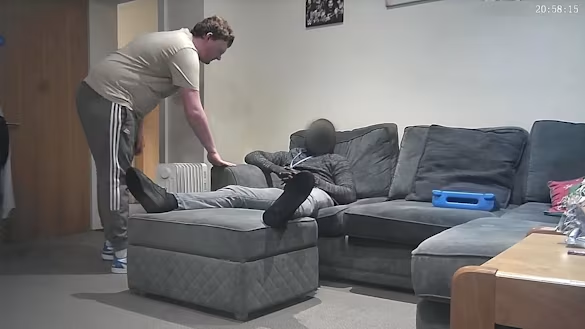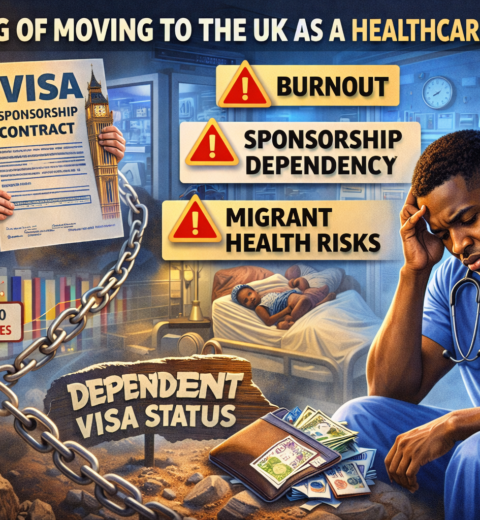Introduction
A shocking investigation by ITV News has recently exposed severe neglect in care homes run by Lifeways, one of the UK’s largest private care providers. The report highlights disturbing instances of neglect, including a disabled man eating from a rubbish bin and another suffering from untreated infections that caused severe health issues. This article aims to raise awareness among Nigerian caregivers and parents of service users in the UK about the critical need for vigilance and advocacy in ensuring the safety and well-being of vulnerable individuals in care.
The Disheartening Reality
ITV News uncovered multiple cases of neglect at Lifeways homes, which are responsible for providing care to over 4,000 individuals with complex conditions, including learning disabilities, autism, and mental health conditions. One particularly heartbreaking case involved a young man with learning disabilities, autism, and bipolar disorder. Despite requiring 24-hour care, footage captured him eating from a rubbish bin in the middle of the night.
Another disturbing story came from a man with Down’s syndrome whose untreated foot infection led to severe complications, including rotting tissue that required hospital treatment. Lifeways CEO Andrea Kinkade expressed her horror at the findings and confirmed that staff involved in these incidents had been suspended and removed. However, the incident raises an important question: how often are vulnerable individuals subjected to neglect in these institutions, and what can be done to prevent it?
What Nigerian Caregivers and Parents Should Know
For Nigerian caregivers and parents of service users in the UK, these shocking stories should serve as a wake-up call. While we trust care providers to look after our loved ones, it is vital to remain vigilant and proactive. Families must stay informed about the quality of care their loved ones are receiving, especially when they cannot advocate for themselves.
Here are some steps that caregivers and parents can take to safeguard their loved ones:
- Install Monitoring Systems: If possible, set up cameras to monitor the quality of care provided. As seen in the case of Connor, a young man with Phelan-McDermid Syndrome, installing a camera revealed significant neglect by staff. Surveillance can serve as a tool for accountability.
- Advocate for Better Training and Staffing: Many families and former staff members have reported inadequate staffing levels and insufficient training in homes run by Lifeways. Advocate for the training of caregivers to ensure they are equipped to handle the needs of individuals with complex conditions.
- Know Your Rights: In the UK, local councils contract care providers like Lifeways to deliver services. If you feel that your loved one is being mistreated, contact your local authority to report the issue and seek support. Councils are responsible for ensuring that care providers meet safety and quality standards.
- Check Inspection Reports: Regularly review Care Quality Commission (CQC) inspection reports for the care homes your loved one is in. These reports can provide a clear picture of whether a home is meeting required standards.
- Maintain Open Communication: Stay in regular contact with the care providers and encourage your loved ones to communicate their needs and concerns. Many residents cannot advocate for themselves, and it’s crucial that family members act as their voice.
The Impact of Profits Over People
The ITV investigation also highlighted that Lifeways, like many private care providers, is primarily focused on profit. This focus on financial gain over the well-being of residents has led to situations where vulnerable individuals are neglected and even put at risk.
As Nigerian families, we must understand that while care providers are contracted by local authorities, their ultimate responsibility is to ensure that our loved ones receive dignified and respectful care. If these standards are not met, it is our duty to demand better treatment and take action if necessary.
Conclusion
This investigation shines a light on the deep-rooted issues of neglect in the UK’s care homes, and it’s crucial for Nigerian caregivers and parents to take proactive steps in ensuring that their loved ones receive the proper care. Vigilance, advocacy, and staying informed are key in holding care providers accountable for their actions. If you suspect neglect or abuse, don’t hesitate to contact the relevant authorities or organizations, such as Access Social Care or the Samaritans, for support and guidance.
Your loved ones deserve dignity, respect, and care, and it’s up to us to make sure they get it.
For more information and support, please refer to the following resources:
- Access Social Care – Offers free legal advice for those with social care needs.
- Samaritans – 116 123 or samaritans.org for emotional support and guidance.
#NaijaUKConnect #CaregiverAwareness #SupportForFamilies
Join Our WhatsApp Channel
Stay updated on the latest UK news, including education, health, job openings, and more for those living in the UK!
Join here: Naija UK Channel
Also, follow us on our social media channels for the latest updates and discussions:
- Twitter: @NaijaUKConnect
- Facebook: Naija UK Connect
- Instagram: @naijaukconnect




